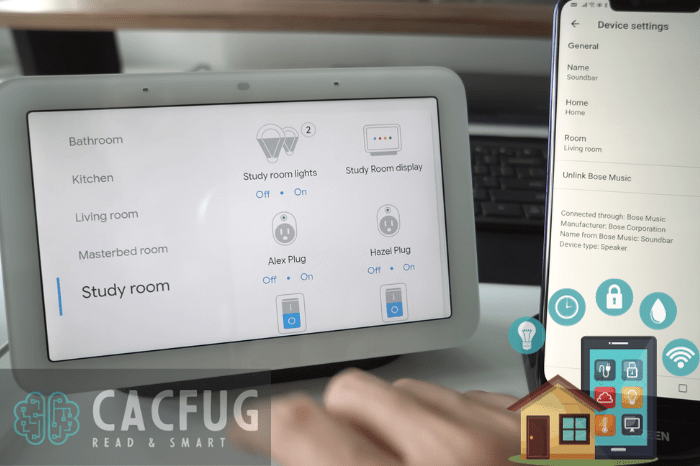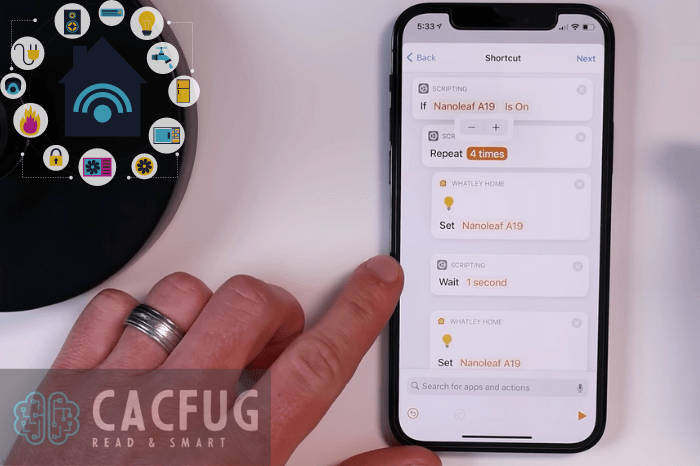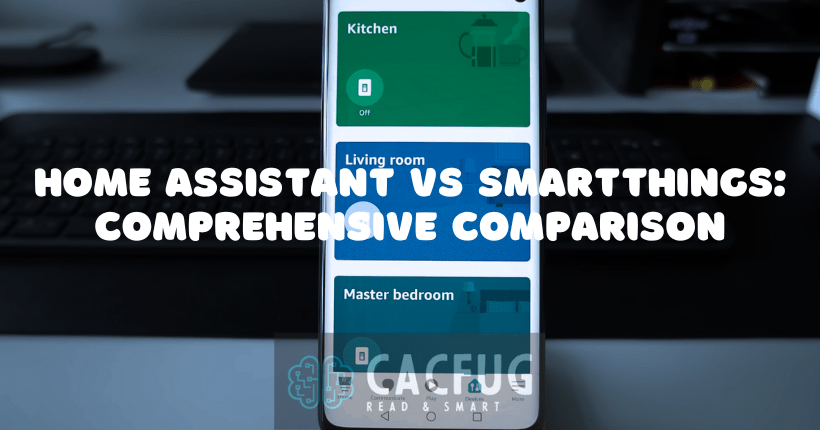With smart home technology becoming increasingly popular, more people are looking to automate their homes. Two of the most popular platforms are Home Assistant and SmartThings. But which one is right for you? This in-depth comparison examines the key differences between these two systems.
Smart home technology allows you to control and automate various home devices using your smartphone or voice assistants. Home Assistant and SmartThings are two leading platforms that allow advanced home automation. This guide will compare features, useability, scalability and help you choose the system that best fits your needs and budget.
Overview of Home Assistant
Home Assistant is an open source home automation platform that integrates with various smart devices.
Key features include:
- Free, customizable and expandable platform.
- Works with over 1500 different smart devices.
- Robust community support for troubleshooting and development.
- Advanced automation through YAML-based configuration.
- Hosted locally so it works without an internet connection.
- Available apps allow control via smartphone or voice assistants.
While extremely versatile, Home Assistant requires more technical knowledge to setup and maintain.
Overview of SmartThings
SmartThings is a proprietary smart home ecosystem owned by Samsung.
Here are some of its main capabilities:
- User-friendly app for smartphone control.
- Connects with hundreds of compatible devices.
- Cloud-based so it works remotely.
- Simplified automation through IFTTT-style applets.
- Professional monitoring option available.
- Limited customization and dependence on cloud connectivity.
SmartThings prioritizes simplicity and broader hardware compatibility.
Key Feature Comparison

Usability
SmartThings simplifies the initial setup process through their sleek smartphone app that walks new users through connecting devices, basic rules and automation. Its graphical interface and pre-built integrations allow even smart home beginners to achieve basic functionality quickly.
In contrast, Home Assistant offers unparalleled flexibility and control for advanced users but assumes a higher level of technical competency. The initial server setup and configuration editing requires comfort with the Linux/YAML environments. While more complex, HA’s open-ended approach also enables incredibly tailored solutions.
Compatibility
Home Assistant’s open source nature means community developers have added support for over 1500 different devices and platforms – far more than SmartThings’ hundreds of official integrations. However, SmartThings offers out-of-the-box support for more popular brands like Samsung smart TVs, Yale smart locks, Schlage keypads and Philips Hue lights.
While tech-savvies HA users can integrate these devices too, SmartThings delivers a simpler way to automate major smart home ecosystems. But HA’s wider device support allows tackling unique use cases.
Customization
For advanced smart home owners, Home Assistant leads the pack when it comes to detailed customization. Its YAML-based automation rules offer almost limitless options to trigger actions based on complex logic. SmartThings allows simpler “If-This-Then-That” style applets that have more constrained choices.
So between the two, HA provides more advanced, albeit complicated, customization while SmartThings favors pre-packaged simplicity. Their approaches cater to users differently based on technical skill.
Got it. Here are more detailed comparisons for reliability & user experience, cost, and security & privacy:
Reliability and User Experience

Both SmartThings and Home Assistant platforms exhibit reliable core performance and user satisfaction in reviews. SmartThings gains an advantage in stability from Samsung’s continued large-scale investment in data systems and server infrastructure to support their growing device ecosystem. Its status as a company-backed platform also ensures formally accountable customer service.
Home Assistant reliability benefits from its local area network operation that doesn’t fully depend on cloud uplinks. However, its community-based support lacks a uniform SLA when issues arise. Individual system stability can vary based on factors like home internet robustness. Reviews suggest that while both platforms work well overall, HA’s dependence on the owner’s server maintenance makes SmartThings’ user experience a bit more seamless.
Cost Comparison
Home Assistant wins hands down when it comes to upfront and ongoing costs. Its open source foundation translates to 100% free access – users only pay for the hardware they choose to buy. SmartThings’ hub-based model means an investment of $100-$150 even for basic functionality. They also incentivize premium integrations and subscriptions for advanced features like professional monitoring.
Over time, costs add up significantly for SmartThings while Home Assistant lets owners scale control and automation at zero incremental expense. However, budget-flexible SmartThings patrons may prefer the convenience and service access their subscriptions offer over researching third-party HA integrations.
Security and Privacy
SmartThings’ cloud backbone allows wide-ranging device interconnectivity but at the cost of collective data sharing. Its reliance on Samsung servers means user behavior and smart home metadata is centrally stored. While they implement security mechanisms like encryption, privacy conscious users may be wary.
Home Assistant’s local network operation keeps data on-premise with the smart home owner. Beyond better privacy, it also allows HA to work even when internet connectivity is disrupted. But creativity is required to integrate professional monitoring tools that SmartThings readily supports. Both platforms offer reasonably robust security to prevent external hacks, but HA better addresses data privacy concerns.
Conclusion
While both Home Assistant and SmartThings can provide robust home automation, factors like technical skill, intended use cases, privacy concerns and cost help determine the right system for different users. Home Assistant’s open-ended flexibility makes it the choice for tinkerers while SmartThings offers better ease of use. Ultimately your choice depends on your priorities. Carefully weigh the key factors before deciding on which platform works best for your smart home needs.





